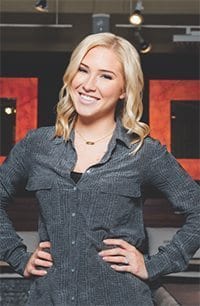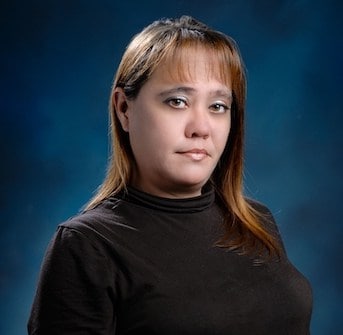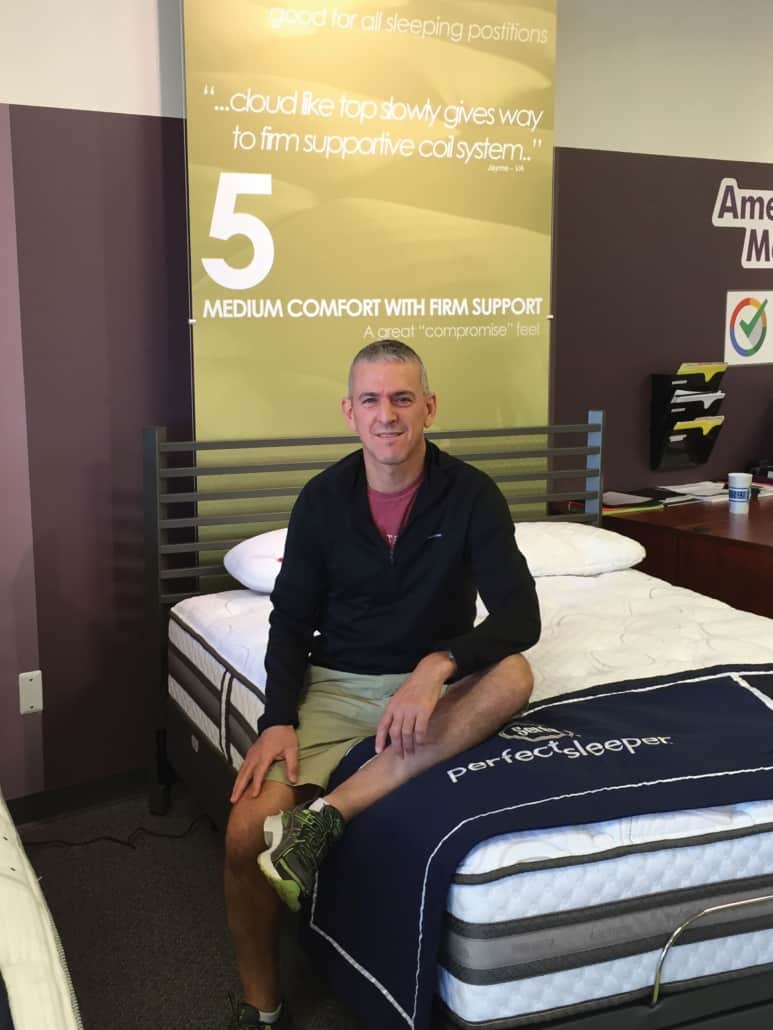In the wake of the global pandemic, mattress retailers are social distancing, frequently sanitizing stores and delivery vehicles, shifting store hours and more as consumer interest in bedding products rises
Elana Stone Anderson Alan Vonder Haar Geoff Imhof Vanessa Contreras Joe Alexander Shawn Reimold Joe Nashif
Busy websites but less busy stores. Social distancing. More frequent cleaning. An uptick in sales of lower priced bedding — and an increased interest in bedding products overall. These are some of the many changes that mattress retailers say they’ve experienced since the novel coronavirus pandemic began to spread across the globe in late winter and early spring.
BedTimes interviewed about a half-dozen mattress retailers — ranging from multistore bedding chains to single-location independents — to better understand how the retail landscape is being contoured by COVID-19. When we queried the retailers in mid-July, many areas of the country had largely reopened after mandatory shutdowns of everything from schools to businesses, but some localities had begun reordering closures and requiring the use of face coverings to stem rising cases, hospitalizations and deaths.
On the following pages, you’ll find a sampling of retailers’ responses to our questions, but first we wanted to highlight their answers to one particular query. We asked them, “What could mattress and sleep accessories vendors do to best support mattress retailers right now?”
To an open-ended question such as that, we expected a wide variety of answers, but all of their responses dealt with the supply chain. Echoing the sentiments of several others, Joe Nashif, president of US-Mattress.com based in Brighton, Michigan, said, “Many vendors today are having production delays due to the shutdowns and startup. It will help when that all gets back to normal.” Elana Stone Anderson, vice president of marketing for Portland-based BedMart, put it this way: “Get product to us faster!” And Shawn Reimold, a store manager for Ephrata, Pennsylvania-based Martin Furniture & Mattress, noted that the vendors that are going above and beyond to fulfill orders and those that supplement their regular deliveries with drop shipping should be touted as examples of “the Great American Worker.”
The retailers indicated they understand that manufacturers and suppliers of mattresses and other sleep products have faced their own shutdowns and may be having trouble sourcing components and rehiring staff, but retailers are eager to sell bedding and are hopeful delivery times will return to normal soon.
MORE ON COVID-19’S EFFECTS
This is the second in a series of articles examining how
the mattress industry is being affected by and responding to the global novel coronavirus pandemic. In the July
issue of BedTimes, we talked to bedding manufacturers and suppliers about how they’ve modified operations at their offices and factories. (Also read this frank commentary from those on the frontlines.) In the September issue, we’ll speak with bedding industry representatives regarding how the pandemic is changing mattress recycling.
1. How have your in-store operations changed since the coronavirus pandemic began?
“We are careful to monitor state and local requirements, such as limited traffic per store square footage, staff wearing masks at all times, sanitizing the mattresses and bedding with UV light, hand sanitizer at the counter and touchless checkout. We are open five days a week now as opposed to seven as we were previously so we can staff the stores with only one staff member to avoid too much contact.”
— Joe Alexander, chief executive officer and founder of Nest Bedding, which is based in Albany, California, with bedding showrooms in major cities across the country
“Since the beginning of the pandemic, we have been proactive in adjusting our operations to meet U.S. Centers for Disease Control and Prevention guidelines and state government mandates. We immediately put out a statement on our website and social media and created a COVID-19 update page to keep our customers informed of the changes in our business services. We increased our cleaning and sanitation efforts, reduced hours, limited store capacity, restricted business-related travel, and transitioned to video conferencing for meetings and sales training. While (temporarily) closed, we focused on our e-commerce business and have been helping customers via live chat, over the phone and by appointment. We initially reopened our stores with shortened hours and reduced staff, but are now fully operational with social distancing and increased cleaning efforts.”
— Elana Stone Anderson, vice president of marketing for BedMart, a multistore chain of sleep shops, outlets and furniture stores based in Portland
“Our business reduced the number of on-site sales staff, with no impact on the customer experience. We shortened the store’s hours of operation. We have increased the operational hours with increased customer traffic, but we’re still not back to our regular store hours.”
— Geoff Imhof, furniture and mattress buyer for Abt, a retailer of electronics, appliances, furniture, mattresses and more located in the Chicago suburb of Glenview, Illinois
“We’ve done a number of things. First, we have plenty of signage to encourage social distancing and the wearing of masks. And we’ve set up supplies of disinfectants and masks for consumers when they enter the store. Lastly, our people wear masks, and we have disposable pillow and mattress covers for our bed tests.”
— Joe Nashif, president of US-Mattress.com, a pioneer of mattress e-commerce based in Brighton, Michigan, with several brick-and- mortar stores across the state
“We started offering personal consultation appointments, implemented social distancing and shut down retail locations.”
— Vanessa Contreras, president of McRoskey Mattress Co., a San Francisco-based mattress retailer
“Once (our local) lockdown order was lifted, our showroom was open to guests by appointment only, and our showrooms were limited to half capacity. We are currently fully staffed with regular hours.”
— Alan Vonder Haar (better known as “Dr. V”), mattress specialist and director of strategic development and growth for Miskelly Furniture, a Jackson, Mississippi-based furniture and mattress retailer with seven locations in the state
“Initially, we were closed indefinitely. As our county moved to a ‘yellow’ phase, we began deliveries of products to customers who had purchased pre-COVID, and we did a few appointments. Hours were greatly reduced. However, our team was encouraged to stay up to date regarding product knowledge through at-home training videos from some of our vendors.”
— Shawn Reimold with Ephrata, Pennsylvania-based Martin Furniture & Mattress, which has two furniture and four mattress stores. Reimold manages the store in New Providence, Pennsylvania. The company is part of the Martin Appliance and Martin Water Conditioning family of companies.
2. How have you incorporated new safety/cleaning procedures to protect employees and customers?
“We have started using four sheets of (disposable) pillow ‘napkins’ to lay on top of the mattresses when the guest is trying them out. This way, the guest’s whole body is protected from the bare surface of the mattress that other guests have laid on. It takes more time to lay them out on several different mattresses. However, we think this goes a long way in demonstrating to the guest that we care about their health.” — Vonder Haar, Miskelly Furniture
“Deep disinfecting done twice a week, frequent disinfecting of high-touch areas, social distancing, pillow and bed covers, face masks, health assessments and temperature checks.” — Contreras, McRoskey Mattress
“We have daily cleaning procedures, in addition to cleaning that is done when a customer leaves.” — Nashif, US-Mattress.com
“We have followed the CDC guidelines and have encouraged employees to limit close contact and maintain a 6-foot distance from customers and each other. We require employees and customers to wear face coverings. We’ve increased our daily cleaning efforts and disinfect high-touch surfaces after each customer. All of our stores have been supplied with hand sanitizer, and each customer is offered a disposable mattress and pillow shield to use while trying the product.” — Stone Anderson, BedMart
“Our sales and delivery teams practice social distancing during in-store and in-home services. Routine cleaning of frequently touched surfaces and wearing of masks have been our daily practice.” — Reimold, Martin Furniture & Mattress
“The store has dedicated personnel responsible for deeper and consistent cleaning throughout the day. We’ve employed common-sense procedures, such as limiting the number of associates with access to specific point-of-sale systems. Lots of hand sanitizer, etc.” — Imhof, Abt
3. How have your mattress delivery procedures changed?
“As before, about 90% of our deliveries are conducted by FedEx. On white-glove deliveries, we are either dropping at the street, door or hallway, or (for in-home delivery), we are making sure our staff are masked and social distancing.” — Alexander, Nest Bedding
“Our delivery personnel have continued their normal delivery process, adjusting based on the wants and needs of each individual customer. Customer pickups, including curbside, have increased across all (pricing and product) categories.” — Imhof, Abt
“At this point, we have resumed in-home delivery and mattress removal. But we also offer the customer the option of contactless delivery to their door.” — Nashif, US-Mattress.com
“We’re now offering customers a choice between a contactless delivery option and in-home, white-glove delivery. We were unable to offer our in-home delivery and removal services while our stores were closed and relied on our contactless delivery service and customer pickups. We actually had plenty of customers who wanted to wait for mattress delivery until we could bring it in and set it up. Since resuming our delivery services, every customer’s comfort level has varied, but I’d say the overwhelming majority still want in-home delivery. Contactless deliveries are in demand, but we have not seen an unusual demand for customer pickups.” — Stone Anderson, BedMart
“At first, we offered (threshold) drop-offs as an option for our customers. Some chose to wait until regulations were eased. Since our county went to a ‘green’ phase a few weeks ago, we have seen an uptick in consumer confidence (regarding deliveries). Our scheduler asks our customers if anyone in the home is or has been recently ill. If so, we kindly suggest rescheduling at a later date, following the CDC guidelines.” — Reimold, Martin Furniture & Mattress
“Originally, we were doing store-to-door delivery but only until about halfway through May. What we found was that those guests who bought more premium mattress sets would just wait until we began doing in-home setup again before they set their deliveries. Customers who bought value sets were much more willing to come to the store to pick up.” — Vonder Haar, Miskelly Furniture
4. What new safety/cleaning procedures have you put in place for your delivery teams?
“Our delivery teams are wearing masks in the home, cleaning surfaces that are touched and minimizing the time spent in the home.” — Reimold, Martin Furniture & Mattress
“All of our delivery teams are wearing masks and gloves on every delivery.” — Vonder Haar, Miskelly Furniture
“All solid surfaces in the truck are disinfected at least twice a day. Our team wears face masks, gloves and disposable booties for every delivery. The gloves and booties are replaced after every use. After a delivery is completed, our team disinfects the surfaces they touched in the customer’s home.” — Stone Anderson, BedMart
“We have rigorous cleaning done after each stop. We use hand sanitizer and disposable masks, gloves and shoe covers.” — Nashif, US-Mattress.com
5. Have you seen changes in consumer interest in sleep products?
“I think there is increased interest in sleep products, in general. There’s also a huge movement to support local businesses, both in-store and online. We have definitely seen an increase in our e-commerce business, so naturally boxed beds are getting attention.” — Stone Anderson, BedMart
“We have not seen any real difference in what people want to buy —same items, just more cautious in their interactions.” — Nashif, US-Mattress.com
“Website traffic is up tremendously. We have seen more mattress protectors sold to the value customer than usual. It does seem as if the customer who usually wouldn’t spend the extra money for the mattress protector is actually spending more for the extra protection and peace of mind.” — Vonder Haar, Miskelly Furniture
“Many more customers are comfortable buying over the phone or online.” — Contreras, McRoskey Mattress
“We cannot say that we have seen an increase in boxed bed sales, however the interest in our website has grown tremendously, with more product and price inquiries. We have seen an increase in local sales through our website, as well.” — Reimold, Martin Furniture & Mattress
“Yes, online traffic and sales have skyrocketed. With brick-and-mortar closed in most major metro areas — and consumer confidence in high-touch locations at an all-time low — touchless and showroomless shopping is up big time.” — Alexander, Nest Bedding
“From March through the present, there’s been a reduced demand for luxury mattresses, especially products priced over $3,000. The demand for pillows and mattress protectors has remained in line with mattress purchases.” — Imhof, Abt
6. Have you seen changes in average tickets? Are consumers more interested in financing their purchase?
“Average tickets are somewhat down.”— Contreras, McRoskey Mattress
“In January and February, our average mattress ticket was $850. In March, it dropped to $500, and when we had web-only sales in April, it dropped to $400. In May and June, it went back up to around $700. The bargain customer is dominant right now, so it appears that the luxury customer is down, but that’s not really true. May was the single biggest mattress month in our 41-year history, even though we sold a lot of bargain mattresses.” — Vonder Haar, Miskelly Furniture
“The average ticket has declined. Financing is neutral.” — Imhof, Abt
“We had brought on the Beautyrest Black line just before COVID-19 began and actually did not receive our floor samples until we were a month or so into the pandemic. We have had a pleasant increase in our average ticket. We are doing some financing; however, the majority of sales are cash.” — Reimold, Martin Furniture & Mattress
“Both (average tickets and financing rates) have remained about the same.” — Alexander, Nest Bedding
7. Have you made changes in how you handle comfort returns or exchanges?
“The biggest update we’ve made is internal. We are ‘quarantining’ any product picked up from a comfort exchange by keeping it sealed in plastic for two days before releasing it to our outlet.” — Stone Anderson, BedMart
“(Our procedures) have stayed the same, but we have also seen a big drop in returns.” — Alexander, Nest Bedding
“We froze mattress exchanges in mid-April through June 1. Customers didn’t lose their full 90 days (for returns). (It was) only a temporary stoppage.” — Imhof, Abt
“We have resumed returns. We offer them for free. Some competitors charge, but we do not. The return process is the same for us as before.” —Nashif, US-Mattress.com
“We haven’t changed anything yet, but we are considering charging more money and shortening the comfort exchange allowance period.” — Contreras, McRoskey Mattress











